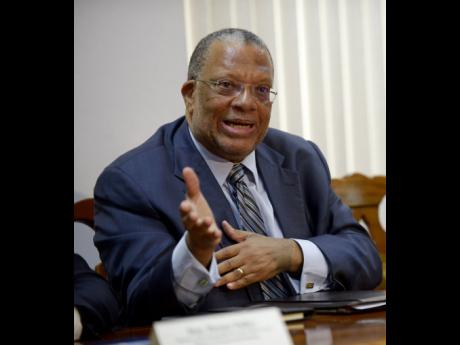Phillips predicts downward movement of interest rates
Finance Minister Dr Peter Phillips is predicting a further downward movement of domestic interest rates.
He says this is due to recent policy implementation gains and market forces propelled by the upcoming National Debt Exchange (NDX) payment of $62 billion due in February 2016.
Phillips said at an economic forum on Wednesday that recent fiscal policy measures have resulted in a lowering of headline inflation, presently running at 4.4 per cent and an improvement in Jamaica’s balance of payments position.
“In addition to what we’re already seeing as competitive forces developing in the credit market including a sharp improvement in the expansion of the market for commercial paper domestically further reforms and including this [NDX] payout will drive not only further reductions in commercial banking rates but should also see a build-up in other sources of credit in the private credit realms that will be an additional driver that we hope and expect in investments,” said the finance minister at the forum hosted by Victoria Mutual Building Society in Kingston.
An International Monetary Fund team is currently in Jamaica for the ninth quarterly economic review of Jamaica’s performance under the IMF Extended Fund Facility.
Phillips reported that there have been several improvements in Jamaica’s macro-economic position, for example, the current account deficit estimated at 5.3 per cent in 2014/15 is projected to improve even further to 2.8 per cent.
He highlighted the just-signed heads of agreement for public sector wages. Under that agreement with eight unions, public Sector workers agreed to a $4,000 across the board increase in year one of the wage deal and a further 3.5 percent increase in year two.
He noted that the agreement was a sign of maturity and understanding on the part of public sector partners.
“It represented a sharing of the benefits that have resulted so far - not to the extent that some would have wished - but I want to commend the trade union leadership and the public sector workers for far-sightedness in recognising the linkage between their own personal circumstances and the prospects for the country improving”, Phillips said.
He observed that the unions had adjusted their expectations in the face of economic realities.
“They fashioned their own demands in the end recognising that there was value in ensuring that the sacrifices already made were not destroyed by a set of unreasonable demands and expectations which would derail the basic programme,” Dr Phillips said.

